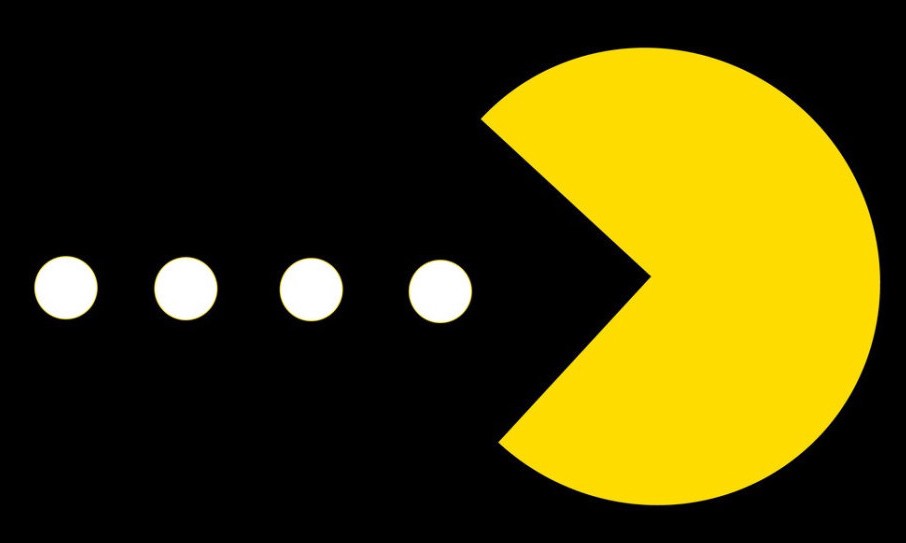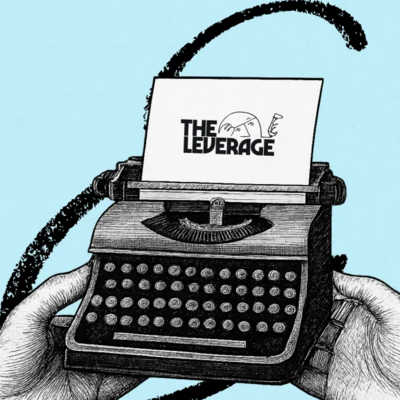
Sponsor Every
I am in the fortunate position of getting to sling words for a living. These words are sponsored by advertisements. Like this one!
But this is a special ad because it is an ad letting you know that Every is accepting some new sponsors for the fall. We have great ad performance, a best-in-class audience of 50,000 investors/founders/executives, and you also get to feel fuzzy because you are helping me make rent. Win, win, win.
Learn more about rates and performance here.
The genes of my grandchildren are entirely predicated upon algorithmic efficacy. Which is to say, my wife and I met on a dating app.
It is remarkable to consider that if some engineer in Bangalore had just slightly altered an app’s sorting function, my wife’s beautiful smile wouldn’t have appeared on my screen, and I never would’ve swiped right. We held exactly 0 friends in common, lived in different cities, and there is zero chance we would’ve met somewhere.
Still though, I don’t entirely credit my potential progeny to technology. When I first started using the apps I found that they were unable to truly forecast if I would like someone, so I decided to develop an optimized methodology for that first in-person meeting. It went like this:
“👋 How’s your apocalypse going?” (this was during the 2020 Covid summer)”
Potential future mate responds with something and asks how mine is going
“Good, I’ve discovered the cure for Covid.”
They ask, what is it?
“Ice cream with a cute person. Friday?”
Gives me their number
This probably had like a 40% success rate so feel free to steal it if you are lonely.
I know this example is kitschy but stick with me. My whole life changed because of one stupid little piece of software. I wasn’t even a paying customer! It is a spooky level of power for Hinge to have. The application was a lever that lifted my entire life to a better place with one little flick of the finger on a 6 inch pane of glass.
I’m starting to think that software changing things isn’t limited to marriage. I manage my powerlifting program app via TrainHeroic. My hike for this weekend? Alltrails. Music, diet, journal, household chores, groceries, all managed via various pieces of software.
In 2011, Marc Andreeson published his seminal essay, “Why Software is Eating the World.” In it, he argued that software would consume every industry. “More and more major businesses and industries are being run on software and delivered as online services—from movies to agriculture to national defense. Many of the winners are Silicon Valley-style entrepreneurial technology companies that are invading and overturning established industry structures. Over the next 10 years, I expect many more industries to be disrupted by software, with new world-beating Silicon Valley companies doing the disruption in more cases than not.”
He goes on and on, listing industry after industry, that was/would be consumed by software-first companies. He was absolutely right. Software has transformed every major industry over the last 10 years. However, he did not go far enough.
Software is consuming industries but it is also consuming individuals.
What it means to be human is shifting. We are becoming what I call “embedded humans.” Our interactions with the world are determined by the software that we use. Software is being embedded into our identity and individuality.
“But good sir,” you may object, “the tools we use have always changed who we are.” And you would be totally right! However, up to this point in human history, almost all of these goods have been centered around physical augmentation. The vast majority of products were meant to increase the labor capacity of a person’s hands. Now though, most technology is doing mental automation. Rather than increase the strength of an arm, we are directly embedding software into our cognitive processes to automate away mental labor. This is something new. If you don’t believe me, ask yourself if there is any part of your life or activity that doesn’t involve software somehow.
This arguably makes the creation of thoughtful software the most important task facing the technology sector today. Understanding what software is and what it will look like in the future is both a business and a moral imperative. So…let’s talk about it.
Do Humans Dream of Crypto Sheep
Philip Dick once wrote, “Maybe each human being lives in a unique world, a private world different from those inhabited and experienced by all other humans... If reality differs from person to person, can we speak of reality singular, or shouldn't we really be talking about plural realities? And if there are plural realities, are some more true (more real) than others?”
Sponsor Every
50,000 of the top operators, founders, and investors in tech read Every, every day. You can reach them and grow your business by running a sponsorship with us.
In context, the acclaimed sci-fi author was speaking of those with mental illness, but it applies to embedded humans too. As you think of your personal activity stack, from the mundane daily tasks to the magnificent moments, the more unique tools you use to optimize them, the more you are allowing your world to be cracked by the tools you let into your life.
To clarify, this post is not a long-winded way to complain about social media or the fictional idea of filter bubbles! Social has its problems, but I don’t think they are particularly unique. What matters is that the more tools we use to enhance cognitive output, the more cognizant we must be of the actions those tools are influencing.
A common example: Twitter.
If you spend enough time on the website, you’ll eventually hear the phrase “Twitter brain.” This is where if you spend enough time using it, you’ll allegedly have a suboptimal brain that prioritizes quick takes. And I mean…yes? But also—there is Substack brain! This is where you place too much weight on the publication of a single opinion writer *looks in mirror uncomfortably*. There is Tumblr brain! Facebook brain! Shoot, there is probably a Yahoo brain! There is an everything brain! All of these pieces of software shape who we are and how we interact with the world. There are probably some that shape us into better thinkers than others, but they all likely affect us to a similar degree. Disclosure: I briefly worked at Substack but now largely disagree with their anti-ad stance. I hope they build a booming business and prove me wrong.
Let’s take another rather spicy, rather specific example: Web3.
Crypto allows you to turn essentially anything into a financial product. You come up with an idea, slap a crypto token on top, and you embed the IRR into the very nature of the software. This is not the point where I pass moral judgment on said pursuit (I did that two weeks ago) but this design choice changes everything. It changes how the conversations with other project participants feel. It changes the vibe of the marketing, the community it attracts. It means that even if the pursuit of the project is noble, there will always be a light flavoring of financial speculation.
A rather abstract example: Customer Relationship Software (CRM)
Salesforce’s software changes the nature of how salespeople treat their customers. Because the software is designed to handle customer relationships as a funnel, sales teams are designed in the same way. There are top-of-funnel, mid-funnel, and end-of-funnel specialists, all of who are lords of their partial-funnel fiefdoms, all housed within Salesforces software. It forces a level of transactionality into the relationships that salespeople have with their prospects. Their job is only to punt the person into the next stage of the process. Volume in and volume out is the name of the game and it manifests itself in how many salespeople treat their potential clients. This is despite this not being the way most sales work anymore! Sales are much more about growth loops, rather then funnels.
The Meta-Layer of Humanity
As I’ve discussed this idea with people over the last few months, most of the disagreement with it has been definitional. The more academically rigorous of my friends would say something that was basically verbatim of Wikipedia’s history of software article. “Software is a set of programmed instructions stored in the memory of stored-program digital computers for execution by the processor.” When I chatted with computer scientists and software engineers the answer was usually more cynical, “Something I get paid too much money to make.” Venture Capitalists: “Something other people do that I get rich off of.”
In previous writing about software business models, I have broken down the history of software into two distinct periods. BS (before Salesforce) and ASS (after Salesforce’s success). The ASS period, in which we currently reside, is different because the business model shifted to one wholly reliant on subscriptions. With subscriptions and increasing internet availability, markets that would previously not work to sell software in suddenly became lucrative. The last 20 years has resulted in a Cambrian explosion of new companies that iterated on the ASS model with ever more efficient iterations like product-led growth, usage-based pricing, the amazing performance of direct response ads, and how fin-tech can make selling to small businesses insanely profitable. Software has moved from simply being something sold into how corporations control their limbs and interact with humans. For individuals, it means that even for the tiniest, dumbest use case, there is likely software that exists that will make your life easier.
In the ten years since Andreessen published his original essay, entrepreneurs have made it at least moderately profitable to sell software to every single person and corporation on the planet.
Software was initially specialized, geeky, abstract. It was Microsoft Word, Linux, Excel. Something fairly generic that could be used by everyone. Today’s software can sell status, opinons, and meaningful feelings.
When software was originally invented all it meant was the Wikipedia definition. It just helped us use hardware. Software is no longer the meta-control layer of hardware, it is the meta-control layer of humanity. I don’t mean this is a Blade Runner, 1984, Terminator sorta of way. Merely that there is this an everpresent digital edit feature that is lightly altering our individual reality.
Perhaps a better analogy is glasses. In the 13th century when they first invented, they were crude, rough things. There was varying thickness but you pretty much had to make do. Today’s Software is a contact lens. It is customized exactly to your needs, it is delivered directly to you, and you see the world through it in your own, unique way.
If you are a longtime reader, you likely would expect me to moralize a little as this point. However, the morals of this issue don’t actually matter. This trend is here, it is going to stay, and there is absolutely nothing we can do about it. The only thing that matters is how we respond. To that end I would offer two categories of answers:
Enterprises
For most of the ASS period, a great way to make money was to solve a local issue, take it to the cloud, and sell it to everybody. This move still (remarkably) works—we have a long way to go before we reach peak cloud-based subscription software. Initially the play was just to take typical software products to the cloud, but the 2010s went beyond that by taking basically everything to the cloud.
At this point we are at the second or maybe even third layer of software. You can now sell software that solves a problem that another piece of software caused which solved another problem that resulted from software. It’s a leaning tower of software problems. There are now multi-billion dollar companies like Snowflake that exist just to help other pieces of software work better. It’s nuts! But it’s life!
The two ways to make money will be to find new problems software hasn’t solved (an ever-shrinking pool) or to sell layers 2+ software that solves problems caused by existing software. Note: There is probably a paragraph about the metaverse that should be written here but I find the topic so mind-numbingly dull and abstract that I exercise my creative right to skip it entirely.
Individuals
Really this is an article about tools. These tools are new and they are more powerful than any that have come before. The proper application of software on an individual level will create people that have superhuman levels of output. In 5 years, when AI programs can create prose and images and code all with simple commands, this effect will be even more amplified. There will be a concentration of power in individuals to a degree we haven’t seen before.
At the start of this piece, I called Hinge a lever. With minimal effort, I was able to make significant improvements to my life. This same power is available in every other part of our lives. Through the intelligent use of software, we can make our lives spectacularly better. It simply requires creativity and gumption to curate these tools effectively.
The Only Subscription
You Need to
Stay at the
Edge of AI
The essential toolkit for those shaping the future
"This might be the best value you
can get from an AI subscription."
- Jay S.
Join 100,000+ leaders, builders, and innovators

Email address
Already have an account? Sign in
What is included in a subscription?
Daily insights from AI pioneers + early access to powerful AI tools







.08.31_AM.png)


Comments
Don't have an account? Sign up!